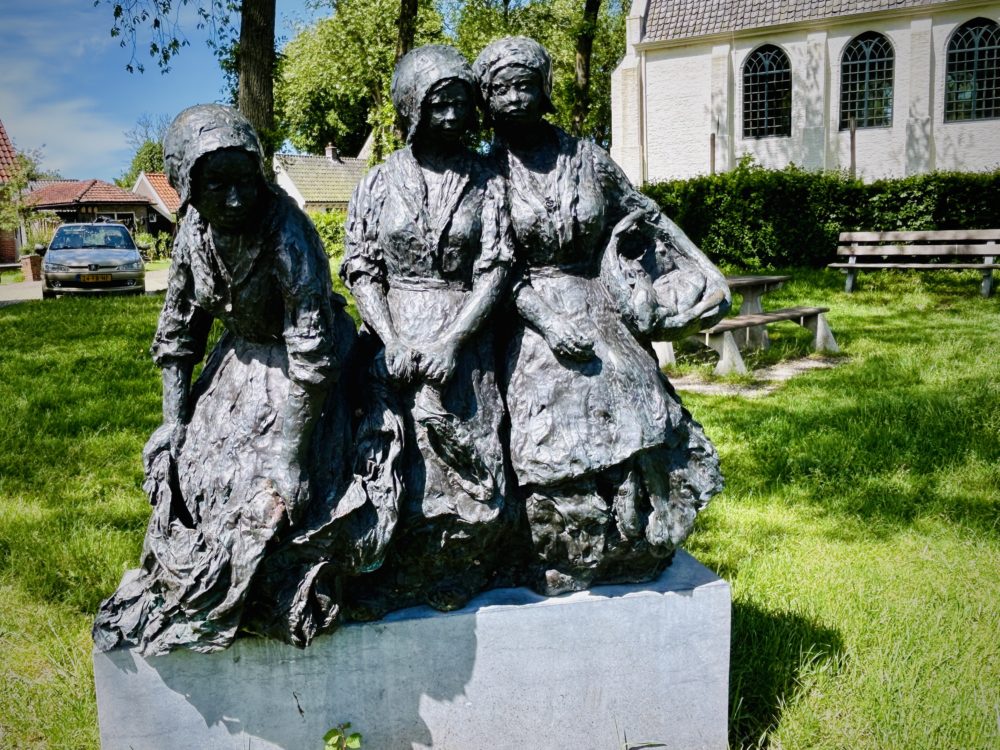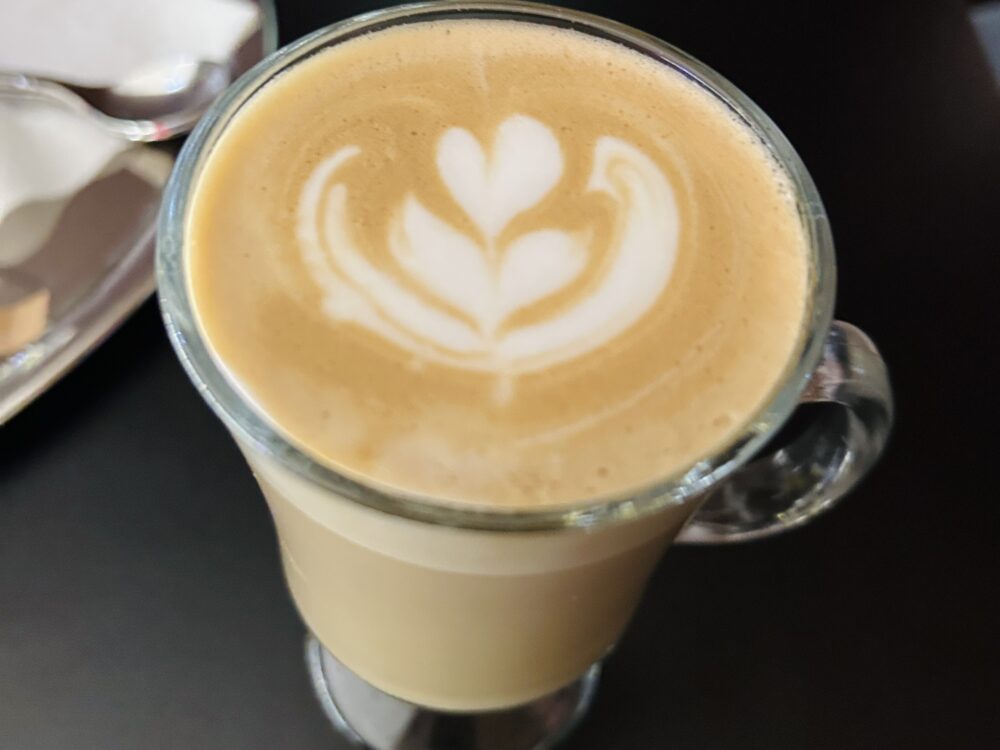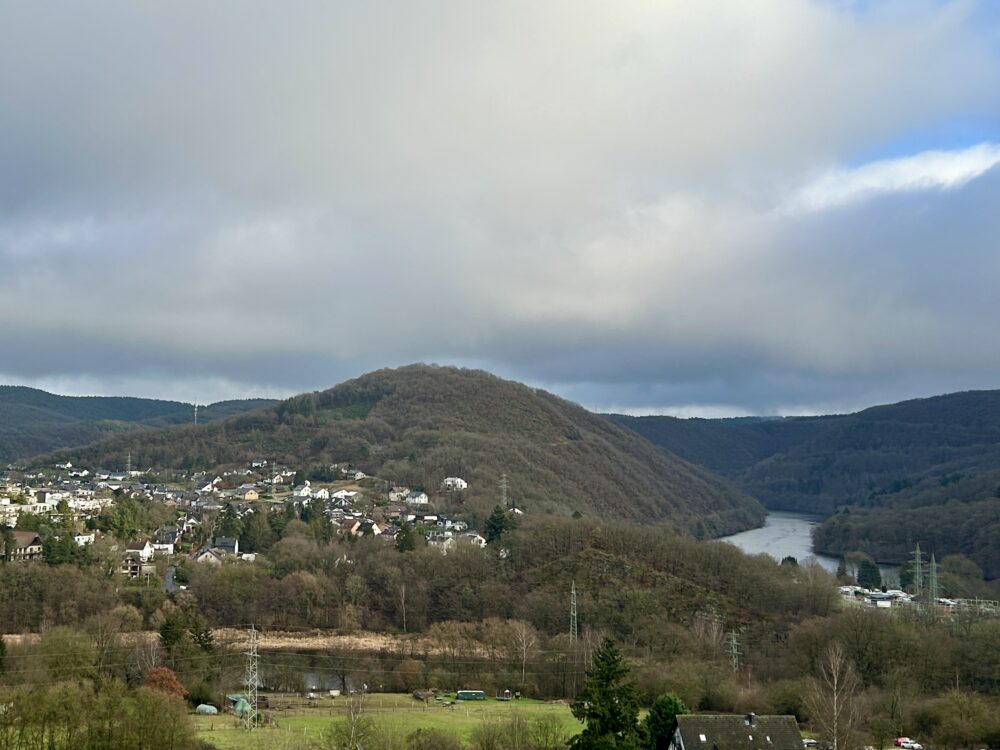In the quaint village of Groet in the Netherlands, a poignant tribute to the laborious past of laundry work stands in the form of a statue named “Wasvrouen” by Dutch sculptor Carla Rump. This piece of art serves as a stark reminder of the times when washing clothes was not just a chore but a gruelling task that could lead to an early grave.
The Heavy Toll of Laundry Work
In the days before modern appliances, laundry work was a physically demanding and time-consuming task. Women, often referred to as washwomen, would spend hours scrubbing, rinsing, and wringing out clothes by hand. The constant exposure to cold water and harsh chemicals led to various health issues, including arthritis, respiratory problems, and infections. The strenuous nature of the work, coupled with poor working conditions, meant that many washwomen suffered from early mortality, a fact poignantly captured in the Hungarian poet Attila József’s line “a mosónők korán halnak” (washer-women die young) from his poem “Anyám” (My Mother).
Carla Rump’s “Wasvrouen”
Carla Rump, born in 1965, is a Dutch sculptor known for her figurative work in bronze, stone, and wood. Her sculpture “Wasvrouen” in Groet is a testament to her ability to capture the essence of common beauty and the struggles of everyday life. The statue is not just a representation of washwomen but a symbol of the resilience and strength of those who laboured tirelessly in the shadows of history.
Attila József’s Poem
Attila József, one of Hungary’s most beloved poets, often wrote about the struggles of the working class and the hardships faced by ordinary people. His poem “Anyám” (My Mother) reflects on the toils of his own mother and, by extension, the plight of washwomen:
My mother
Holding the mug with both hands
towards evening one Sunday,
she started to quietly smile
and sat for a while in the twilight –
She brought her supper home
in a small pan from his Eminence’s,
we lay down and I reflected
on how they eat a whole pot-full –
She was my mother, tiny, died young,
because washer-women die young;
dragging loads makes their legs shake
and their heads hurt from ironing –
For dirty linen forms their mountains,
for play of clouds to soothe the nerves
there is the steam, and for a change of air,
for washer-women there’s the attic –
I see her stop with the iron.
Her fragile figure was broken
by Capital, she kept getting narrower –
proletariat, think about it –
She was a little stooped from washing
and I did not know she was young,
she wore a clean apron in her dreams,
and the postman greeted her then –
Translated by Leslie A. Kery
Anyám (Magyar)
A bögrét két kezébe fogta,
úgy estefelé egy vasárnap
csöndesen elmosolyodott
s ült egy kicsit a félhomályban – –
Kis lábaskában hazahozta
kegyelmeséktől vacsoráját,
lefeküdtünk és eltünődtem,
hogy ők egész fazékkal esznek – –
Anyám volt, apró, korán meghalt,
mert a mosónők korán halnak,
a cipeléstől reszket lábuk
és fejük fáj a vasalástól – –
S mert hegyvidéknek ott a szennyes!
Idegnyugtató felhőjáték
a gőz s levegőváltozásul
a mosónőnek ott a padlás – –
Látom, megáll a vasalóval.
Törékeny termetét a tőke
megtörte, mindig keskenyebb lett –
gondoljátok meg, proletárok – –
A mosástól kicsit meggörnyedt,
én nem tudtam, hogy ifjú asszony,
álmában tiszta kötényt hordott,
a postás olyankor köszönt néki – –
1931. jan. 6.
#Wasvrouen #CarlaRump #ArtInHistory #LaundryWork #AttilaJozsef













